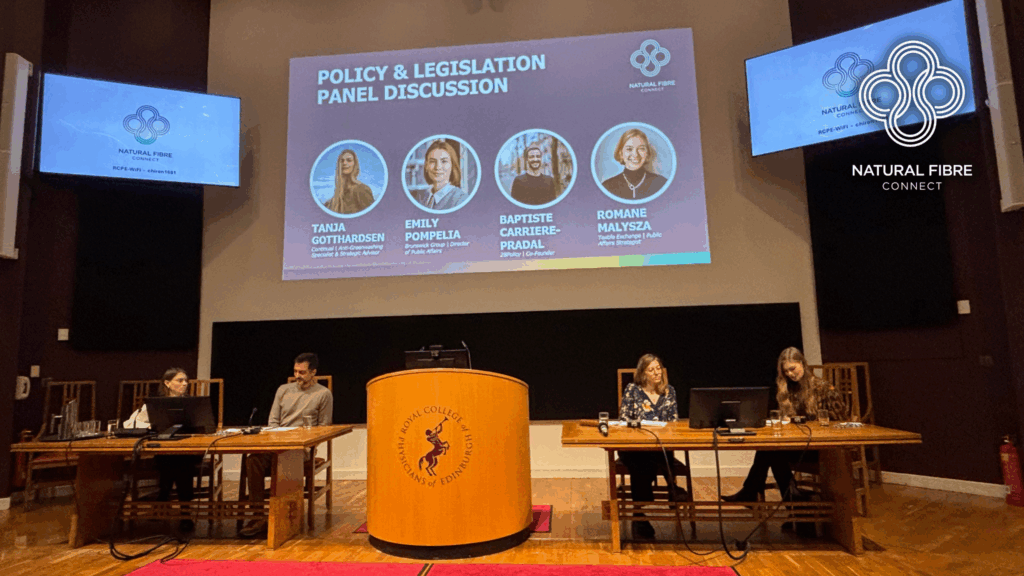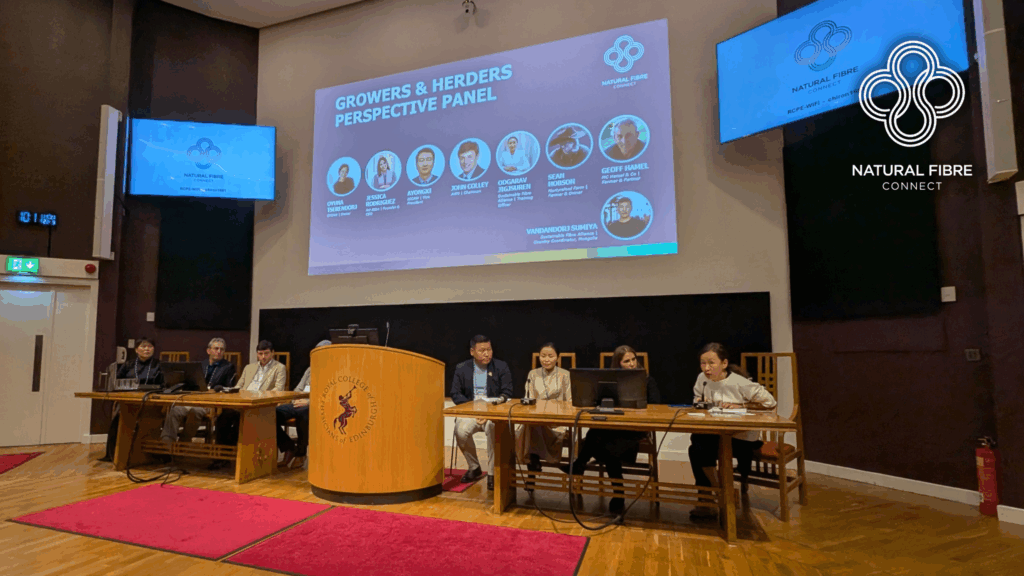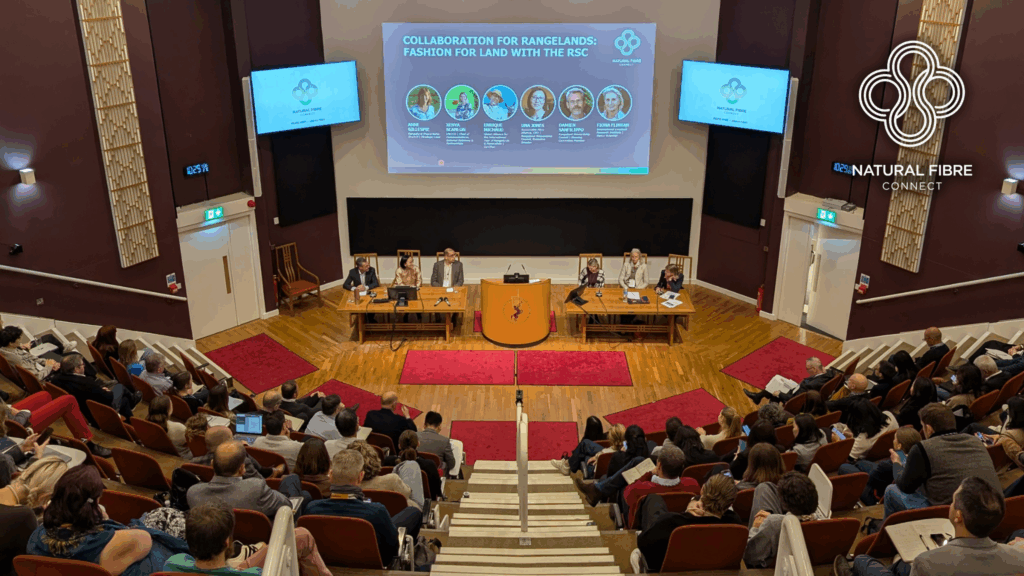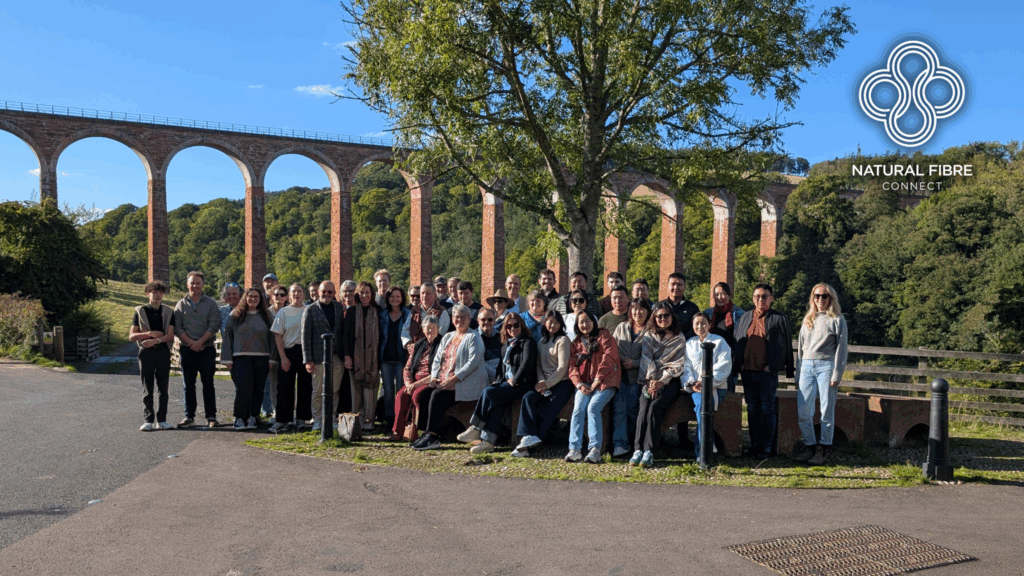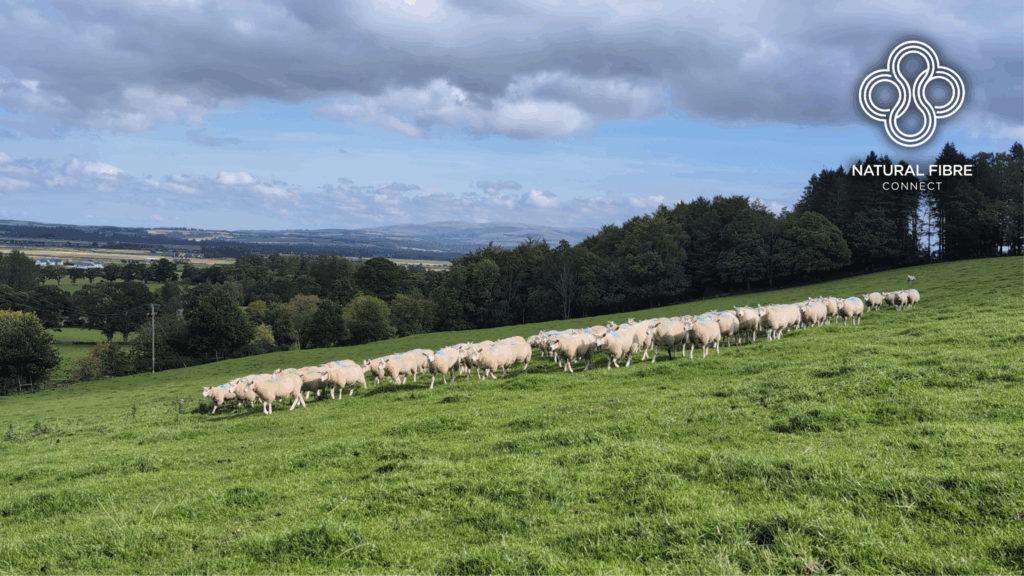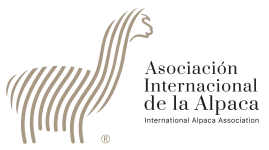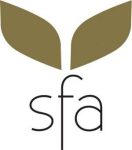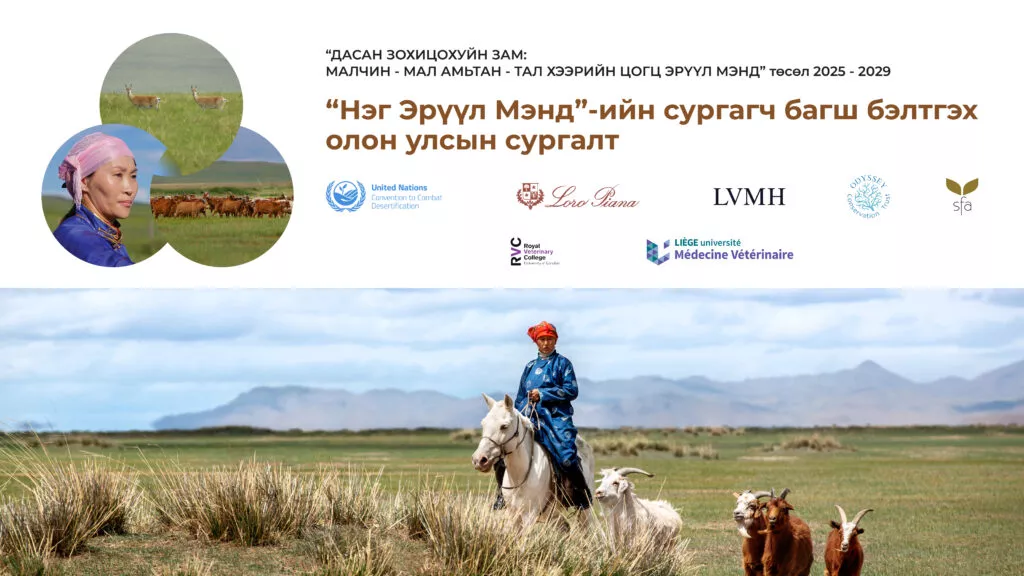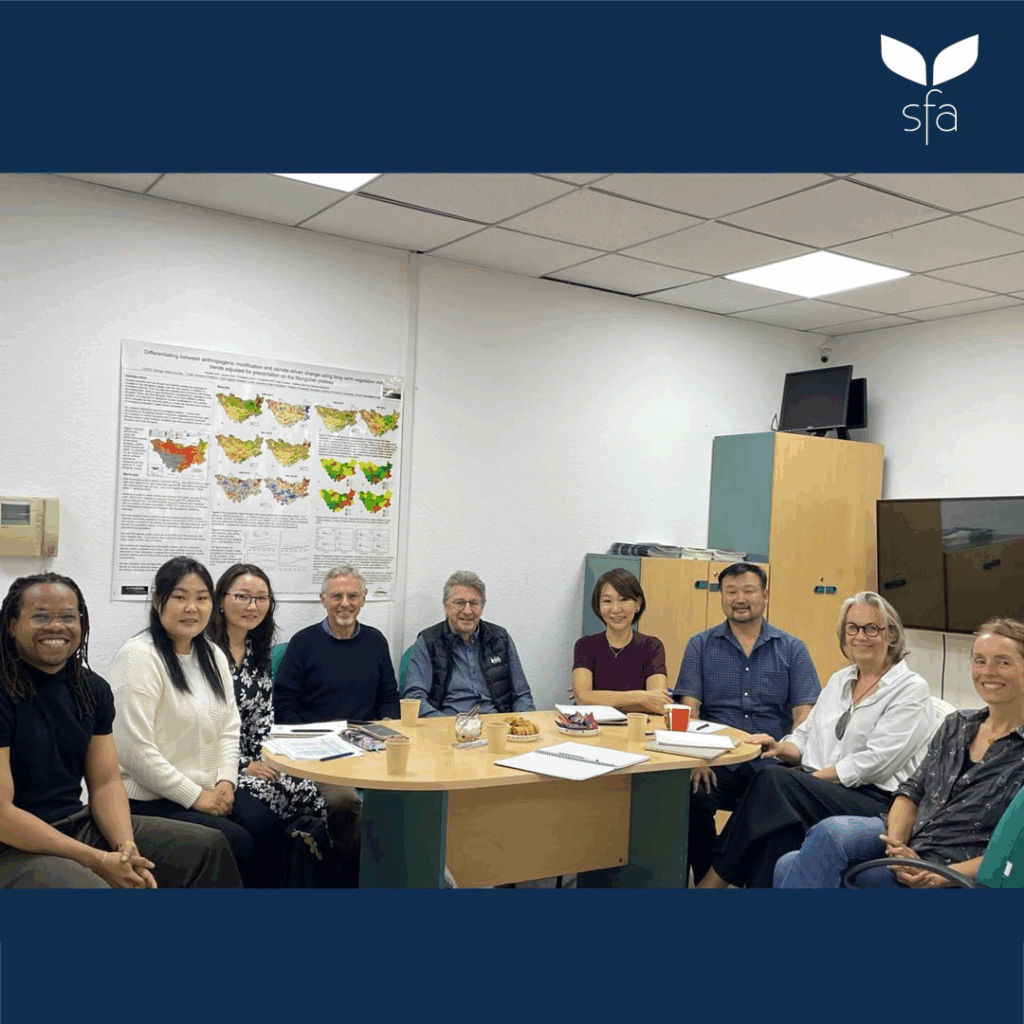Natural Fibre Connect 2025: Global Industry Unites in Edinburgh to Advance Collaboration, Climate Action, & Regenerative Futures
Over 160 delegates from 27 countries joined in person, with 1,000+ online viewers, for two days of cross-sector dialogue on sustainability, circularity, and the policy future of natural fibres.
Edinburgh, UK – The fourth annual Natural Fibre Connect (NFC) Conference concluded on 22-23 September 2025 at the historic Royal College of Physicians of Edinburgh, marking another milestone for the global natural fibre community. The two-day event united producers, policy experts, and innovators from across six continents, reaffirming NFC’s role as a catalyst for collaboration, transparency, and regenerative progress across the textile value chain.
More than 165 delegates attended in person, and over 1,000 joined the livestream via LinkedIn. Across 21 sessions, including nine workshops and breakout sessions, 48 international speakers explored the intersections of sustainability, circularity, regenerative systems, animal welfare, and policy reform.
Global Voices & Shared Purpose
Day 1 opened with Peter Ackroyd, Chairman of the Campaign for Wool, who urged the industry to act decisively in the face of shifting consumer habits and rising synthetic fibre use.
“We are probably facing a difficult moment in the world of natural fibres,” Ackroyd said. “The United Kingdom, Germany, and Japan are the highest consumers, per capita, by weight, of wool and natural fibres in the world. We don’t process it, but we do buy it.” Ackroyd went on to state that “I don’t have anything against synthetic fibres – I just ask people who use them to use them responsibly.”
Conference host LaRhea Pepper, Co-Founder of Textile Exchange and Senior Advisor at the Regenerative Organic Alliance, encouraged delegates to move from conversation to connection.
“What does it mean to move from ‘let’s connect’ as a concept to ‘we’re connected’?” Pepper asked. “It’s an action. It means there’s cooperation, commitment, and continuous improvement. It’s about cultivating relationships – being a steward, investing in the connections that sustain our work and our world.”
Producers at the Heart of the Conversation
The Growers’ and Herders’ Perspective panel brought together voices from alpaca, cashmere, mohair, and wool communities across four continents, highlighting the human dimension of the fibre economy.
“I am honoured to sit here with the growers and herders – the very backbone of the natural fibre industry,” said designer Oyuna Tserendorj, who moderated the session.
Sixth-generation South African wool and mohair farmer Sean Hobson added that “Certification has allowed us, as primary producers, to have more of a say. The value chain, right up until the final product, has a lot more visibility, there’s a lot more communication.” Hobson went on to share that, “A farmer like myself, sitting in a venue like this, chatting to you all about what we are deeply passionate about, just getting the opportunity to be heard, I think has been wonderful for us.”
Panellists captured the spirit and tone of the conference through single words: “hope”, “innovation”, “integrity”, “family”, “collaboration”, and “heritage” – reflecting a sector bound by shared purpose.
Pepper closed Day 1 by noting that, “So many conferences you go to, you don’t have the opportunity to hear the voice of the producers, the voices of the growers,” and went on to conclude that, “It is about a legacy, and it’s about having a voice, and working together.”
Rangelands, Policy & Regeneration
Day 2 was hosted by heritage ambassador Charles Hubbard, introducing keynote speaker Simon Cotton, CEO of Macnaughton Holdings. Cotton highlighted Scotland’s deep textile legacy – from tartan to cashmere – and its continuing global influence.
“The first thing that anyone thinks about when they’re asked about Scottish textiles is tartan,” Cotton said. “Tartan fabric has been a recurring staple in fashion collections for centuries and is probably one of the most iconic fabrics in the world.”
The flagship Collaboration for Rangelands: Fashion for Land session, hosted by Anne Gillespie of the Rangeland Stewardship Council (RSC), gathered representatives from the Sustainable Fibre Alliance (SFA), the UN Convention to Combat Desertification (UNCCD), the Global Alliance for the International Year of Rangelands and Pastoralists (IYRP), and the Global Environment Facility-funded STELARR (Sustainable Investments for Large-Scale Rangeland Restoration) Project, which is implemented by IUCN and executed by the International Livestock Research Institute (ILRI) and partners. The panel explored how fashion, policy, and science can together restore global rangelands.
UNCCD’s Chief of Communications, External Relations & Partnerships, Xenya Scanlon, underscored the importance of land stewardship: “Here, today, I am to talk about a stakeholder that was not mentioned [yesterday], and yet is critical for the future sustainability – survival – of the businesses that you lead in the fashion industry. And that stakeholder is, indeed, land.” Scanlon later went on to highlight that “Governments alone will not be able to solve this problem. And that the private sector is both, in many cases, the source of some of the degradation we are seeing, but also the powerful solution to the health of the land.”
SFA CEO Una Jones shared insights from Mongolia: “Rangeland stewardship has been one of our really key areas of bringing change in Mongolia.” Jones went on to share that, “In Mongolia, we have three million people, and one third of our people depend on livestock herding, and 90% of our people depend on cashmere – cashmere is a very volatile commodity.”
Other speakers identified capacity, visibility, and collaboration as both barriers and opportunities for rangeland restoration.
“Sometimes, what’s missing is the co-design element,” said Damien Sanfilippo, founding member of Better Cotton and member of the RSC Steering Committee. “There is no lack of willingness to collaborate. For the past 20 years, every conference I’ve been to ended with ‘let’s collaborate more’ – what’s important is to do it better.”
Key Figures from NFC 2025
- 165+ in-person delegates over two conference days
- 1,000+ livestream views across both days
- 27 countries, six continents, and around 100 organisations represented
- 21 sessions featured 48 international speakers
- 12 sponsors, 9 exhibitors, and 9 mill tour and excursion hosts
Following the main conference, delegates had the opportunity to join three days of mill tours and excursions (24-26 September 2025), celebrating Scotland’s textile heritage at sites including Old Leckie Farm, Lochcarron of Scotland, Johnstons of Elgin, and The Great Tapestry of Scotland.
Collective Impact & Gratitude
The NFC organisers extend heartfelt thanks to all sponsors, speakers, and delegates who made the 2025 conference a success. Supported by 12 sponsors and numerous partners, NFC 2025 reinforced that the strength of the sector lies in people.
“What makes Natural Fibre Connect so special is the sense of community it builds,” said Katy Edwards, Marketing & Communications Manager at the SFA. “Whether it’s herders in Mongolia, growers in Peru, or designers in Europe, everyone is part of the same story – one rooted in respect for people, animals, and the land. It was an honour to be part of organising an event that celebrates the people behind the fibres and the shared values that unite us.”
Co-organiser, Willy Gallia, added during the event’s closing remarks, “We started this community some years ago, and it’s been growing, and I think now the time has come for us to move away from just doing a conference once a year and start doing more concise action and projects.”
As movement for sustainable natural fibres continues to gain momentum, Natural Fibre Connect reaffirms its commitment to uniting the global fibre community and advancing a shared vision for a world with more natural fibres by 2030. Stay tuned for news on NFC 2026 by following the Natural Fibre Connect on LinkedIn and Instagram.
ABOUT NATURAL FIBRE CONNECT
With a vision for a world with more natural fibres by 2030, the Natural Fibre Connect (NFC) brings together the world’s leading alpaca, cashmere, mohair and wool organisations to advance shared priorities around sustainability, innovation and ethics. By fostering collaboration across the natural fibre sector, NFC aims to build a more transparent supply chain and empower fibre communities for generations to come. The annual NFC Conference is hosted and co-organised by the International Alpaca Association, the Sustainable Fibre Alliance (SFA), Mohair South Africa, and The Schneider Group. For more information and updates, visit www.naturalfibreconnect.com.
ABOUT THE NFC CO-ORGANISERS
Since 1984, the International Alpaca Association has been promoting and protecting the image of alpaca fibre in Peru and around the world. Alpaca is one of the world’s finest fibres and has superlative properties. www.aia.org.pe
The Sustainable Fibre Alliance (SFA) is a non-profit standard-holding organisation that represents a diverse global alliance of supply chain actors, stakeholders, and industry experts, with a mission to ensure the long-term viability of the cashmere sector. SFA’s ‘nutag’ framework ensures a conceptual, holistic approach that focuses on building resilience in herder communities and supporting coupled human-environments that minimise environmental impact, safeguard herder livelihoods, and ensure high animal welfare standards. www.sustainablefibre.org
Mohair South Africa is dedicated to representing, supporting & strengthening the South African mohair industry. As the collective voice of this industry, we advocate for farmers, connect the farm-to-fashion supply chain, and uphold mohair’s international reputation as a rare and luxurious fibre. By fostering innovation, education, and collaboration, we promote both economic and ecological sustainability through regenerative farming practices, uniting all stakeholders to drive growth and value creation across the supply chain. Guided by integrity, community, and heritage, we form strategic global alliances to ensure a thriving, resilient, and globally respected mohair industry for future generations. www.mohair.co.za
The Schneider Group, founded in 1922, specialises in sourcing, processing and supplying wool and other natural fibres to assist its customers in producing sustainable, fully traceable, high-quality textile products. One of its scouring mills and offices is located in Biella, Italy. www.gschneider.com

Katy Edwards
SFA MARKETING & COMMUNICATIONS MANAGER
28 October 2025

